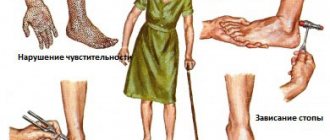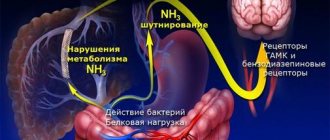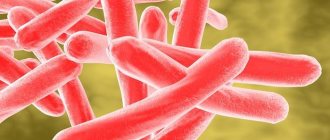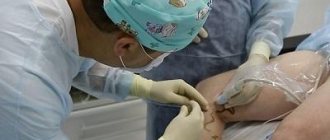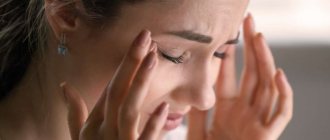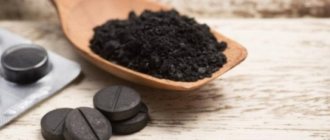Astheno-neurotic syndrome has many synonyms, among which the most famous is the name “chronic fatigue syndrome”. But even this term does not provide a complete understanding of the nature of the disorder, although it largely explains its appearance and nature. In general, astheno-neurotic syndrome is understood as a special type of neurosis, to which people with a sensitive, vulnerable psyche are most susceptible.
In recent years, there has been a sharp increase in the number of cases of diagnosis of this disease, also called neurasthenia. Moreover, among the patients there are not only adults, but also children of different ages! This is a clear reflection of the modern lifestyle, but astheno-neurotic syndrome cannot be called a harmless condition, since in advanced cases it leads to total apathy, deep depression or even suicidal tendencies. Therefore, it is very important to pay attention to the creeping trouble in time and find an effective way to cope with it.
Asthenovegetative syndrome
A functional disorder of the autonomic nervous system, which is responsible for the proper functioning of internal organs, is called asthenovegetative syndrome. It occurs as a result of a disruption in the transmission of signals between the central nervous system and the peripheral nervous system - impulses to the tissues in this case reach sooner or later, and sometimes are reversed. This disease can be either independent or appear as a result of various pathologies, including bipolar disorders, schizophrenia, liver damage, etc. According to statistics, women are more susceptible to this disease; often astheno-vegetative syndrome occurs in children as a result of mental overload and emotional stress.
Asthenia
Asthenia is a very common consequence of coronavirus, which is felt as a limitation of previous mental, emotional and physical stress due to lack of strength. This is general weakness and high fatigue in the same circumstances as before the illness.
Early rises for work, workload, complex tasks, high staircases are perceived as a heavy burden, although previously they were overcome without problems. Asthenia can manifest itself in the form of high irritability, tears, anger from weakness and loss of behavioral control. A person with asthenia sleeps poorly, wakes up without a feeling of rest, hence the decrease in mental concentration and attention.
For post-Covid asthenia, everyone is equal. The elderly and the young, those who have had the disease on a ventilator or in a mild form - everyone can become a victim of this post-Covid symptom.
Asthenia often develops along with apathy and chronic fatigue. If before the disease the patient worked a lot with his head, had little rest and almost did not exercise, his chances of developing post-Covid asthenia are high. Ready-made neurasthenia accounts for the coronavirus and the intensification of asthenic syndrome. The result is a lack of strength and desire to do something, strive for goals, or perform simple everyday actions.
In the case of a strong organism, it can overcome asthenia, but if there is a lack of its own resources, the condition can become chronic. To overcome asthenic syndrome, you need to sleep 8-9 hours according to the regime of early bedtime and early awakening, reduce your workload, walk more and eat a balanced diet. Alcohol should not be consumed during asthenic syndrome. By restoring your daily routine, introducing breathing exercises and other health-improving practices that do not burden the body, you can get out of asthenic syndrome on your own.
Causes of asthenovegetative syndrome
Typically, this disease manifests itself after suffering psycho-emotional trauma, too much mental work, long-term infectious diseases, stress and everything that quickly depletes the body. The modern rhythm of life contributes to the increasingly frequent occurrence of this syndrome in people. Also among the external factors that influence:
- presence of traumatic brain injuries;
- strong psychological stress leading to stress, unfavorable environment at home and at work;
- constant lack of sleep;
- changes in work rhythms, time zones with large differences, climate, lack of vacations.
In addition, the following may serve as a trigger for the development of the disease:
- neurological diseases;
- cardiovascular diseases;
- disturbances in the functioning of the endocrine system.
Hair loss
Hair loss after Covid is a common symptom that can occur even six months after the illness. About a quarter of those who have recovered from coronavirus experience it. Doctors call the reasons for hair loss:
- inflammatory processes in the skin;
- taking a large number of medications;
- intoxication of the body;
- stress factor.
After Covid, hair loss can differ significantly from the processes of natural hair regeneration and reach 50% hair loss instead of the usual 5%. However, the appearance of new hair does not occur immediately.
To renew hair, it is necessary to resume normal metabolic processes in the scalp and restore the general metabolic function in the body, get rid of inflammatory processes in the follicles and carry out general rehabilitation measures for the body.
Symptoms of the disease
Typically, the symptoms of asthenovegetative syndrome are characterized by a gradual increase, in very rare cases they can be expressed quickly and vividly. Since asthenia is translated from Greek as impotence, the very first clinical sign is considered to be fatigue. Then:
- performance decreases;
- absent-mindedness and lapses in short-term memory appear;
- it becomes difficult to concentrate on one object and formulate your thoughts;
- restlessness, anxiety, irritability appear;
- Possible disturbances in the functioning of the genital organs (sexual dysfunction).
In addition to this, patients may develop hypochondria, which results in constant worry about their health. And this is understandable, since they may also be bothered by: tachycardia, shortness of breath, severe headaches, digestive disorders, loss of appetite, severe sweating, cold feet. Later, tinnitus and urination problems may appear. But this is hardly worth allowing; it is better to consult a doctor much earlier.
Depression
Depression after Covid has become a new subject of study for doctors, psychologists and specialists in social changes and their impact on people's lives.
Causes of post-Covid depression
Post-Covid depression has several causes. One of them is somatic. It is associated with inflammation and autoimmune reactions to coronavirus and damage to nervous tissue. Another reason is socio-psychological. This is self-isolation, loneliness, loss of loved ones, fear for one’s health, lack of money.
At risk for post-Covid depression:
- People with an unstable psyche, prone to nervousness, fears and panic attacks.
- Suffering from metabolic problems and lack of vitamins and minerals.
- Alcohol and nicotine abusers.
- Having an increased level of everyday problems.
- Those who do not deal with their own stress resistance.
- Those who have experienced serious losses during the pandemic.
On average, depression develops two to three months after the illness, but these periods can deviate both up and down. At the same time, the number of patients with post-Covid depression is steadily growing both in Russia and in Western countries.
What to do for post-Covid depression
In case of depression, it is recommended not to delay the initiation of psychotherapy. The doctor will give you the opportunity to look at the situation differently, clear your beliefs of “Internet diagnoses,” help you come to terms with the illness you have suffered and understand that a full recovery will take time. In difficult cases, medications are prescribed to relieve symptoms of depression.
If you can’t turn to a specialist, and you no longer enjoy the usual pleasures, you can help yourself. To do this, it is important to establish a daily routine, exercise moderately, walk, eat well, do not only what is necessary, but also something for yourself. And, most importantly, be aware of your thoughts about the disease and avoid negative distortions in assessing your recovery.
You can find like-minded people who have survived Covid. Connecting with others like you brings good results and a sense of community and solidarity. A good example for online communication is the Facebook group “Atypical Coronavirus.” And most importantly, it is important to remember that you can do this. This is an indispensable condition. Post-Covid depression requires one to be strong, and the conviction of victory over it should not leave the patient.
Diagnostics
Various methods are used to make an accurate diagnosis. To exclude pathologies of other organs, laboratory tests (general blood and urine analysis, blood biochemistry), an electrocardiogram and an electroencephalogram of the brain are prescribed. To identify deviations, a psychologist conducts a pathopsychological examination. To exclude serious mental disorders (schizophrenia, bipolar disorder), a neurophysiological test system is used. Sometimes MRI is used as an additional diagnosis.
Content:
- The main causes of asthenic syndrome after coronavirus: 1.1. Asthenia: somatic or mental disorder?
- Features of the clinical course of asthenia after Covid.
- Diagnostic principles: 3.1. Indications for emergency medical consultation.
- How to treat asthenic syndrome after covid: 4.1. Nutrition correction. 4.2. Restoring tolerance to physical activity. 4.3. Drug therapy.
According to doctors, residual symptoms after recovery from COVID-19 can persist for quite a long time. But the most unpleasant and exhausting (primarily psychologically) is the feeling of constant fatigue, weakness and loss of strength. How serious are these symptoms? Is there a way to quickly return to your normal lifestyle?
Treatment of asthenovegetative syndrome
If asthenovegetative syndrome is detected in the early stages, then in this case you can do without medication treatment; it will be enough to give up heavy loads of any nature, normalize your lifestyle and diet, and sometimes just rest. In more complex cases, complex therapy is used, which includes: taking vitamins, massage and physical therapy, electrophoresis, baths with soothing essential oils. Neurometabolic drugs and herbal nootropics may also be prescribed.
In the most severe cases, medication cannot be avoided. Antidepressants (antipsychotics and antipsychotics) will help correct the patient’s condition. An individual approach is very important, taking into account age (a child and an adult have different nervous systems) and the general condition of the body. With the level of modern medicine, the development of the disease can be easily minimized.
Frequently asked questions about asthenovegetative syndrome
How dangerous is asthenovegetative syndrome?
Asthenovegetative syndrome itself is not dangerous; the diseases it indicates, for example, liver dysfunction or the presence of traumatic brain injury, can be dangerous.
How long to treat asthenovegetative syndrome?
Depends on the degree of the disease - the earlier this syndrome is detected, the less time it will take to recover.
Which doctor treats asthenovegetative syndrome?
Treatment is carried out by a neurologist or psychotherapist. In the case of primary diseases, the participation of a specialist in a specific field is necessary.
How to quickly recover from coronavirus?
There is no magic cure for the effects of coronavirus. Rehabilitation after coronavirus can last from several months to a year. The list of rehabilitation measures depends on the individual characteristics of the patient and may consist of the following elements:
- therapeutic exercises;
- breathing exercises using respiratory simulators;
- massage;
- psychotherapy;
- diet therapy;
- physiotherapeutic procedures.
An effective method of rehabilitation after coronavirus is hyperbaric oxygenation - exposing the body to oxygen under high pressure in a pressure chamber. With coronavirus, hypoxia often develops. Hyperbaric oxygen therapy can eliminate it.
An important element of rehabilitation is the intake of vitamin-mineral and amino acid complexes, which help strengthen the immune system. The most important vitamins for post-Covid syndrome are A, D, E, C. Amino acid complexes compensate for the lack of protein in the body, which affects the production of immunological protective antibodies.
Online consultation with infectious disease specialist, allergist-immunologist Natalia Nikolaevna Gordienko
Cost of online consultation: 3500 rubles
Online consultation
During the consultation, you will be able to voice your problem, the doctor will clarify the situation, interpret the tests, answer your questions and give the necessary recommendations.
